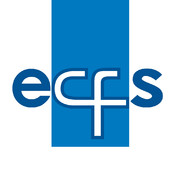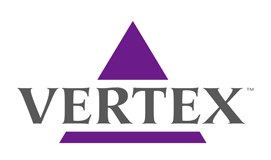Four Studies of Vertex’s Kalydeco Presented at European Cystic Fibrosis Society Conference
Written by |

 At the 37th European Cystic Fibrosis Society Conference, held June 11-14 in Sweden, representatives from Vertex Pharmaceuticals Inc. presented data from multiple clinical trials evaluating Kalydeco (ivacaftor) in patients with cystic fibrosis due to various mutations.
At the 37th European Cystic Fibrosis Society Conference, held June 11-14 in Sweden, representatives from Vertex Pharmaceuticals Inc. presented data from multiple clinical trials evaluating Kalydeco (ivacaftor) in patients with cystic fibrosis due to various mutations.
“Not only does KALYDECO lead to significant initial improvements, but these new long-term data showed that it also appeared to modify the rate of lung function decline, reducing the loss of lung function in people with the G551D mutation,” said Jeffrey Chodakewitz, MD, Senior Vice President and Chief Medical Officer of Vertex, in a news release. “These findings, together with new data from studies in people with the R117H mutation and certain non-G551D gating mutations, show our continued progress in evaluating the benefits of this medicine across different groups of patients and also show that our approach to treating the underlying cause of CF can provide benefits for people with this rare and devastating disease.”
In two concurrent sessions held June 12th, the focus was on cystic fibrosis patients with a G551D-CFTR mutation and patients with a non-G551D-CFTR gating mutation.
The first, which was an amalgamation of data from the Phase 3 STRIVE and ENVISION and the long-term extension PERSIST studies, investigated the effect of ivacaftor on the rate of lung function decline. Remarkably, ivacaftor reduced the annual loss of lung function by half in just three years: Kalydeco-treated patients saw a loss of 0.81 forced expiratory volume in one second (FEV1) percentage points, and non-treated patients (but who had two copies of the F508del mutation) saw a loss of 1.73 FEV1 percentage points.
[adrotate group=”1″]
The second, which discussed results of the Phase 3 KONNECTION study for the first time, focused on cystic fibrosis patients older than six years of age who had at least one of the following mutations: G178R, S549N, S549R, G551S, G1244E, S1251N, S1255P, G1349D or G970R. It was previously shown that lung function, sweat chloride, body mass index, and CFQ-R scores improved by week eight of treatment. On Thursday, the presentation revealed the treated patients’ improvements in FEV1 were maintained through to the end of the study. At 24 weeks, the mean change from baseline was 13.5 FEV1 percentage points. Moreover, ivacaftor was safe and tolerable for patients.
 Also on Thursday, a presentation concerning the Hyperpolarized Helium-3 MRI Study focused on cystic fibrosis patients with the G551D-CFTR mutation. Patients treated with Kalydeco who were then evaluated with the new, sensitive imaging technology 3He-MRI showed less airway obstruction. Notably, some patients had normal FEV1, indicating that Kalydeco might be able to alleviate structural lung damage before it causes irreversible FEV1 deterioration.
Also on Thursday, a presentation concerning the Hyperpolarized Helium-3 MRI Study focused on cystic fibrosis patients with the G551D-CFTR mutation. Patients treated with Kalydeco who were then evaluated with the new, sensitive imaging technology 3He-MRI showed less airway obstruction. Notably, some patients had normal FEV1, indicating that Kalydeco might be able to alleviate structural lung damage before it causes irreversible FEV1 deterioration.
Finally, on Friday, Vertex announced interim results of the open-label rollover from KONDUCT study of cystic fibrosis patients with the R117H mutation. Patients saw a mean absolute improvement from baseline of 5.5 FEV1 percentage points. Interestingly, the decline in FEV1 for patients ages 6 to 11 years old during the initial KONDUCT study was not observed in the rollover study. Throughout the entire KONDUCT study, patients saw a reduction in sweat chloride and improvement in CFQ-R. Vertex now plans to submit a supplemental New Drug Application in the United States in mid-2014 with indications for Kalydeco in R117H mutation cystic fibrosis patients. In the second half of 2014, Vertex plans to submit a marketing authorization application in Europe.
These data are important because progressive lung function loss is the primary cause of death for cystic fibrosis patients. The range of patients studied among the trials highlights how various mutations lead to cystic fibrosis, underscoring the need to better understand how individuals respond to the same therapeutic strategies.






